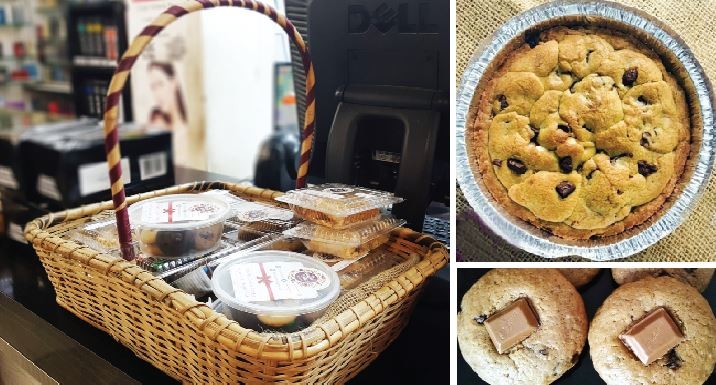
More and more women entrepreneurs are running food businesses from the comfort of their homes -- either to contribute to their families’ earnings, or as a hobby

Home catering service as a business is not a new concept in Pakistan. Earlier, people believed that it was adopted professionally by those who wanted to make money only. However, today, we find educated and well-off people, especially women, taking this up as a vocation.
There are women entrepreneurs in the city who are running their little food businesses from the comfort of their homes, in order to contribute to the family’s earnings; for others it is also a hobby, or a creative outlet.
Like many other business enterprises, the most daunting task for these women is to get the good word-of-mouth. Again, it usually begins at home -- through extended family, friends, friends of friends, and so on. The cheapest -- and also the easiest -- platform remains the social media. Hashtags, a Facebook page, and a few interesting posts with photos of mouthwatering items later, you are all set.
Maryam Jawad, a qualified software engineer, prepares and sells home-cooked meals by the brand name of ‘Better than Perfect.’ She says she "always liked cooking but never thought I’ll start my own business. My husband knew my interest, and one day he made me a Facebook page. In a matter of a few hours only, I got my first order of beef pulao." Since then, as they say, there’s been no looking back for her.
The food market is teeming with branded, ready-to-cook, frozen products but these are not considered ‘healthy’ by virtue of being highly processed. "We make everything at home, and do not use any preservatives," Jawad claims.
The products range from frozen food to degh (a large cooking pot used to cook large quantity of food), and even lunch boxes.
"Usually, when you order food at home, you go for the takeaway option or home delivery service. In both cases, because the food is usually oily and has not been packed properly, it is likely to spill over, which can be a major turnoff," she adds. "So, apart from the quality of our food, we make sure the packing is well done."
Better Than Perfect products are delivered by a reliable person. Initially, though, Jawad says she did not trust an outsider with the task. So, her husband would do the needful by himself. This went on for almost eight months, she reveals, till they found a person they could trust.
For a typical Lahori, "muraghan khaanay" (oily and spicy foods) are never out. Similarly, desserts of various kinds, including cakes and cookies also have a huge market. Enter Nayab Sadaf with her The Magic Delice.
A young lady, who is an Information Technology (IT) graduate, Sadaf bakes cakes and biscuits. She also deals in frozen food items.
Eager to take her baking skills to the next level, Sadaf attended a course at the College of Tourism and Hotel Management (COTHM), in Gulberg, Lahore.
Considering most people’s impulsive buying habits, some food entrepreneurs put out their products, especially baked items, in mid- to up-market departmental stores. Packets full of "assorted cookies" by The Magic Delice can be grabbed at Victoria Store in PIA Colony, next to the checkout counter. The idea, as Sadaf says, is to "tap into to our last-minute, buying impulse."
Labels such as Mohid Foods that offer "Instant Chapattis," and Bombay Frozen with their frozen samosas and roll patties, are commonly available at places such as Jalal Sons.
There’s a rub: a lot of customers prefer picking up stuff made by well-known brands. Another common perception is that the home-cooked items have shorter shelf life.
In the past few years, the Punjab Food Authority (PFA) has played an active role in regulating the food business in the province. Apparently, home food business does not seem to be on their agenda yet. The good part is that everyone TNS spoke with said that they would welcome any inspection related to hygiene and quality standards at their kitchens.
Mahrukh Amir of Home Food Court believes there is no harm in getting registered, "It will only make us more credible in the eyes of the customer."
Amir started her small, home-based business, after completing her graduation in Mass Communication from Kinnaird College University, a few years ago. She also took a course at COTHM. Today, she not only takes orders but also provides lunch boxes to be consumed in offices and hostels.
The orders keep varying, she says. "But I don’t like to store items in freezer. Every day, I get fresh vegetables and meat."
No wonder, her clientele is growing by the day. Amir says she now receives orders for parties also.
Home-based food service is a credible vocation for women who cannot leave their house for whatever reasons and yet want to contribute to their home and society at large. The best part of the work is that you don’t need to start big. The important factors to consider are the quality of food and packing, and delivery on time.
(This an edited version of the article that appeared in print)